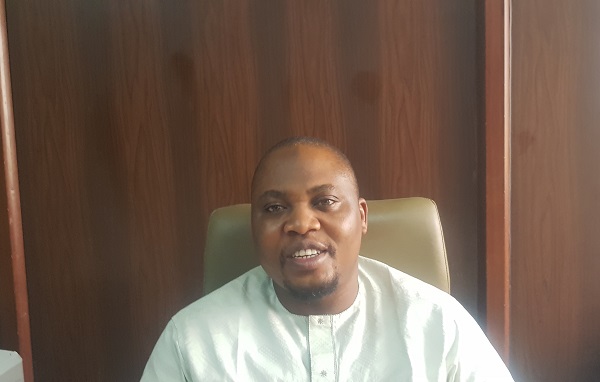
The Federal Government said Nigeria recently joined the Science Granting Council (SGC) initiative in sub-Saharan Africa to help her benchmark and coordinate her research activities, especially in the science, technology and engineering sector.
Speaking during an exclusive chat with Science Nigeria, the SGCI coordinator in Nigeria, Dr. Mustapha Popoola, said the grant initiative domiciled in the Tertiary Education Trust Fund (TETFUND) was launched in 2015 to help participating countries strengthen partnerships across sectors and firm-up their research in science, technology and innovation (STI) to boost socio-economic development.
Participating countries include Botswana, Burkina Faso, Côte d’Ivoire, Ethiopia, Ghana, Kenya, Malawi, Namibia, Mozambique, Rwanda, Senegal, Tanzania, Uganda, Zambia, Zimbabwe and Nigeria, which recently joined the bloc.
Popoola pointed out that Nigeria is currently facing the challenge where most ministries, departments and agencies (MDAs) work in silos, a development that hampers proper coordination of research activities. He, however, averred that joining the initiative will help the country further coordinate and harmonise her research activities for national development.
“The issue of working in silos is one of the issues we’re combatting seriously because it has affected the country. In situations where departments, faculties and institutions are not working together, how will the country work together? So, when you are talking about science, technology and innovation, it is not localised, it is globalised. Nigeria cannot say she is not a part of the global village,” he said.
He added that apart from coordinating its activities at the homefront, within the country, joining the initiative will also help the nation adopt a coordinated approach to interacting with other sister African countries.
“In that context, there is a need for us to work with other countries which, ordinarily, we are doing but it is not well coordinated. That is one of the major justifications and a driving factor for us to join the SGCI because there are 15 African countries already working together,” he stated.

The coordinator restated that joining other African countries in the initiative will firm up strategic partnerships within and outside the country.
“This is why in TETFUND, the essence of the new paradigm is to look at how we can contribute to the socioeconomic development of the country, leveraging our circle of influence (TETFUND) and the kind of interventions we provide in our tertiary institutions which are around 13 interventions. Now, we want to frontload the institutionalisation of research and development because that is the one that will lead us into innovation and enterprise development and we can start talking about migrating from a resource-based to a knowledge-based economy,” Popoola added.
Also, he said the SGCI would help the country with more defined areas of research and interventions in terms of deployment of international resources and proper channelling of investments, adding that Nigeria can leverage the skills and experience of other countries through peer learning mechanism.
“So now, we are going to be talking about entrepreneurship development which, more or less, I see as a copy-and-paste idea because, yes, that is where the global community has leverage in terms of systems and economy.
“It is going to be a good thing for the country to have a basis to benchmark what it is doing and at the same time share notes with other sister countries under the partnership.
“I think, at the end of the day, it is going to help the country and bring about a Pan-African development and goals. That is the essence of deciding to work with our brothers and sisters and see how we can promote African partnerships,” he asserted.
Additionally, he said it would also help the country achieve her dream of migrating from a resource-based economy to a knowledge-based one, adding that promoting research activities would help the nation become more innovative and invariably help add value to her innovations.
“The new thinking in TETFUND is to make sure we leverage our R&D in the tertiary institutions to inform the new policies of government to support our socioeconomic development and to build a strategy and framework for innovation systems that can sustain our knowledge economy base in the country.
“We cannot be a resource-based economy without value addition. That is why we are saying we need to share notes with all other people on the science grant initiative (SGI) and see what is going on in other economies, so we can develop together,” he added.


